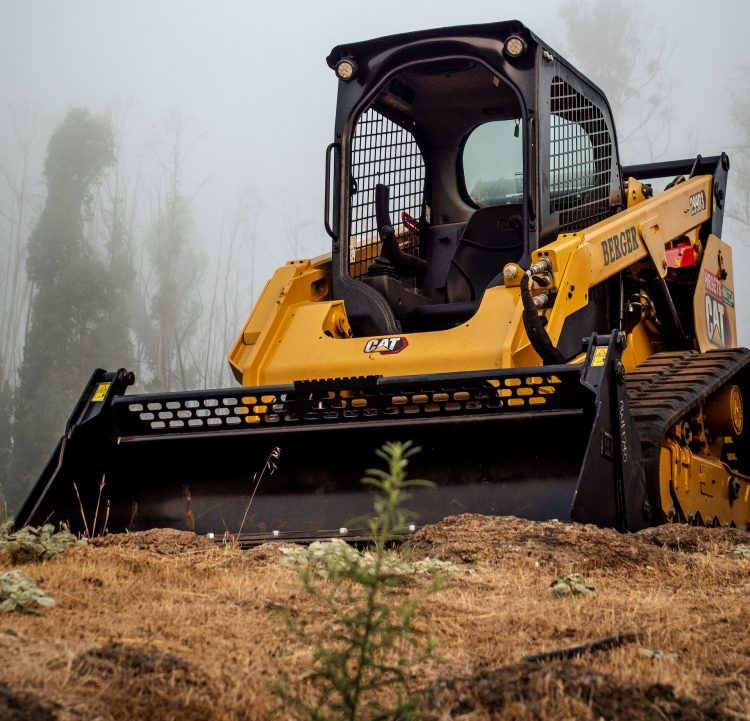In an era where sustainability is paramount, the agricultural sector is undergoing a significant transformation, driven by the adoption of eco-friendly machinery. This shift towards greener farming practices is not just about meeting environmental regulations but also about ensuring the long-term viability of agriculture. This article delves deep into how eco-friendly agricultural machinery is shaping the future of farming, contributing to a more sustainable and efficient agricultural landscape.
The concept of eco-friendly agricultural machinery revolves around reducing the environmental impact of farming operations. This includes the development of machinery that is more energy-efficient, produces fewer emissions, and utilises renewable energy sources.
- Electric and Hybrid Tractors: One of the most significant advancements in eco-friendly agricultural machinery is the development of electric and hybrid tractors. These tractors offer a cleaner alternative to traditional diesel-powered models, significantly reducing greenhouse gas emissions. Battery-powered electric tractors, in particular, have shown great promise, offering a zero-emission solution for farming tasks.
- Solar-Powered Equipment: Solar energy is increasingly being harnessed in agricultural machinery. Solar-powered irrigation systems, for example, are providing a sustainable solution for water management in farming. These systems reduce reliance on fossil fuels and minimise carbon footprints.
- Precision Agriculture Technologies: Modern agricultural machinery is equipped with precision agriculture technologies, which include GPS guidance systems, sensors, and automated controls. These technologies allow for more precise application of water, fertilisers, and pesticides, reducing waste and minimising environmental impact.
Benefits of Eco-Friendly Machinery in Agriculture
The adoption of eco-friendly agricultural machinery offers numerous benefits, both environmental and economic.
- Reduced Environmental Impact: By utilising cleaner energy sources and reducing emissions, eco-friendly machinery plays a crucial role in mitigating the environmental impact of farming. This is particularly important in combatting climate change and preserving biodiversity.
- Cost-Effectiveness: While the initial investment in eco-friendly machinery can be higher, these machines often offer long-term cost savings. Reduced fuel consumption, lower maintenance costs, and government incentives for sustainable practices make these machines economically viable.
- Enhanced Soil Health and Crop Yields: Eco-friendly machinery often leads to better soil health due to reduced soil compaction and less chemical usage. This can result in higher crop yields and better-quality produce.
Challenges in Adopting Eco-Friendly Agricultural Machinery
Despite the benefits, there are challenges in adopting eco-friendly agricultural machinery.
- High Initial Costs: The upfront cost of eco-friendly machinery can be a barrier for many farmers, especially small-scale operations. Financial support from governments and financial institutions is crucial in making these technologies accessible.
- Technological Limitations: Some eco-friendly machines, especially those that rely on battery power, face limitations in terms of power output and operational time. Ongoing research and development are essential to address these challenges.
The Future of Eco-Friendly Agricultural Machinery
The future of eco-friendly agricultural machinery is promising, with continuous advancements in technology.
Innovations in Battery Technology
- Next-Generation Battery Systems: Future advancements in battery technology are poised to revolutionise eco-friendly agricultural machinery. Researchers are focusing on developing batteries with higher energy densities, which means they can store more energy without increasing in size or weight. This advancement is crucial for agricultural machinery, as it would extend the operational time of electric tractors and equipment, making them more practical for extended use in the field.
- Fast Charging Solutions: Another significant area of development is fast charging technology. For agricultural machinery, the ability to quickly recharge batteries is vital to minimise downtime. Innovations such as ultra-fast charging stations or inductive charging, where machinery can be charged wirelessly while in storage, are potential game-changers.
- Battery Swapping Systems: The concept of battery swapping is also gaining traction. This involves quickly replacing a depleted battery with a fully charged one, significantly reducing waiting times associated with recharging. Implementing battery swapping stations at strategic locations on large farms could ensure continuous machinery operation, enhancing productivity.
Integration of Renewable Energy
- On-Board Solar Panels: Integrating solar panels directly into the machinery is an exciting area of exploration. These solar panels could provide supplementary power to the machinery, particularly in sun-rich environments. The use of thin, flexible solar panels that conform to the contours of agricultural machinery is a promising development.
- Wind and Biofuel Energy Integration: Beyond solar, other renewable energy sources like wind and biofuels are being considered for powering agricultural machinery. Small-scale wind turbines could be installed on farms to generate power for electric machinery. Similarly, biofuel-powered engines, which use renewable resources such as agricultural waste, could provide a more sustainable alternative to traditional fossil fuels.
- Energy Storage and Management Systems: Advancements in energy storage and management systems are crucial. These systems would optimally manage the energy harvested from renewable sources, ensuring a steady and reliable power supply for the machinery. Smart energy grids on farms could balance and distribute renewable energy efficiently, reducing reliance on external power sources.
Smart Farming Integration
Autonomous Machinery Development
The future of eco-friendly agricultural machinery is closely tied with autonomous technology. Autonomous tractors and drones, equipped with AI and machine learning algorithms, could perform tasks with minimal human intervention, optimising the use of resources and reducing environmental impact.
Advanced IoT Applications in Agricultural Machine Parts
Enhanced Connectivity and Efficiency: The integration of the Internet of Things (IoT) in agricultural machine parts represents a significant leap in farming technology. IoT-enabled parts in agricultural machinery, such as sensors and communication modules, allow for seamless connectivity and data exchange. This technology enables machinery to automatically adjust operations based on real-time data, leading to more efficient use of resources.
Smart Agricultural Machine Parts: IoT technology transforms ordinary agricultural machine parts into smart, interconnected components. For instance, sensors embedded in tractor parts can monitor soil conditions, while IoT-enabled components in irrigation systems can regulate water usage based on real-time weather data. This integration leads to smarter farming practices, optimising resource use and enhancing crop yields.
Predictive Analysis and Maintenance: One of the most significant benefits of IoT in agricultural machine parts is predictive maintenance. By continuously monitoring the condition of various components, IoT systems can predict when a part will require servicing or replacement, thus preventing costly downtime. This proactive approach to maintenance ensures that agricultural machinery remains in optimal working condition, thereby extending its operational life and efficiency.
AI-Driven Predictive Maintenance
AI and machine learning can predict when machinery will require maintenance before breakdowns occur. This predictive maintenance ensures that machinery operates at peak efficiency, prolonging its lifespan, and reducing waste. AI algorithms can analyse data from sensors on the machinery to predict wear and tear, scheduling maintenance only when necessary.
Eco-friendly agricultural machinery represents a crucial step towards sustainable farming. As the world grapples with environmental challenges, the role of this machinery in reducing the carbon footprint of agriculture cannot be overstated. The transition to greener farming practices, supported by eco-friendly machinery, is not just a choice but a necessity for the sustainable future of agriculture. As technology continues to advance, it will play a pivotal role in shaping a more sustainable and efficient agricultural landscape.









